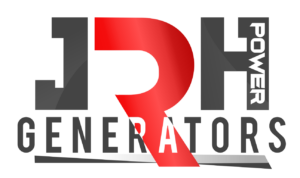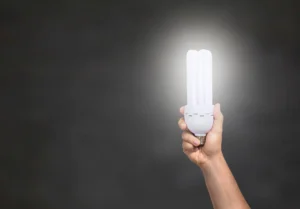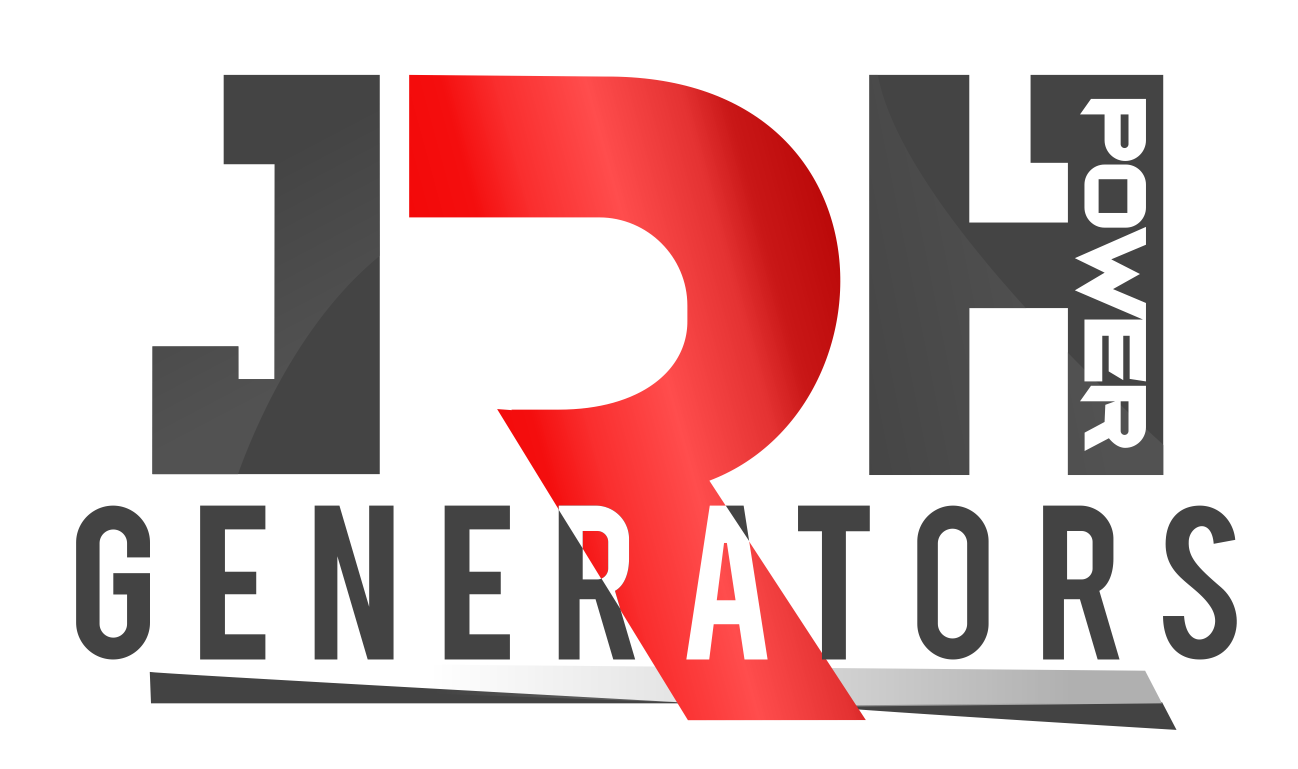Have you ever wondered how electricity becomes a constant in our lives, even in the most critical moments? In JRH Power Generator, we understand the curiosity and the need to know the heart of this modern wonder: the Electric generator.
In this article, we will discover how the electric generator works, offering a complete look from the basic principles to the most advanced diesel and three-phase generators.
How does the electric generator work?
In seeking to understand how the electric generator works, it is essential to start with the basic principles that govern its operation. An electrical generator, at its core, is a device that transforms mechanical energy into electrical energy, a crucial process in a world increasingly dependent on electricity for countless daily applications.
Energy Conversion: The Heart of the Generator
The magic behind how the electric generator works lies in the energy conversion process. Generators use an engine (either powered by fuels such as gasoline, diesel, or even wind or water power) to create mechanical energy. This mechanical energy is used to spin a rotor within a magnetic field, thus creating electrical energy through electromagnetic induction.
The Role of Electromagnetic Induction
Electromagnetic induction is the fundamental principle on which how the electric generator works is based. Michael Faraday discovered that moving a conductor, such as a wire, through a magnetic field induces an electrical flow, this discovery was later linked to what we would later know as "Faraday's law«.
In generators, this movement is achieved by the rotor rotating within a magnetic field created by magnets or electromagnets in the stator, thus generating electricity.
Key Components of a Generator
For a deeper understanding of how the electric generator works, it is important to familiarize yourself with its main components:
- Rotor: The moving part of the generator that rotates to create motion relative to the magnetic field.
- Stator: The stationary part that contains the magnetic field and in which electricity is induced.
- Control system: Regulates the amount of energy produced.
- Cooling and Exhaust System: Maintains the generator in optimal working condition.
- Fuel and Power System: It provides the mechanical energy necessary to move the rotor.
- Conclusions: Understanding the Operation of Electric Generators
If you want to explore this section a little more in depth, this may interest you: Parts of an Electric Generator
Practical Applications of Electric Generators
Understanding how the electrical generator works is crucial not only for engineers and technicians, but also for end users. Generators provide backup power during power outages, power in remote areas where there is no access to the electrical grid, and are essential in events and projects that require temporary power sources.
Understanding how the electrical generator works is essential not only for those in the industry, but also for end users who rely on this technology in their daily lives. From providing emergency power to being the primary source in remote locations, electrical generators are pillars of modernity. Their ability to convert different types of energy into electricity is what makes them so valuable in a variety of applications.
Types of electric generators
When understanding how the electric generator works, it is vital to recognize the diversity of types available, each adapted to specific needs. This section focuses on the different types of electrical generators and how their design and operation fit different contexts of use.
Diesel Generators: Efficiency and Durability
The diesel generators They are widely known for their efficiency and reliability. These generators convert diesel into electricity using a diesel engine. Their robustness makes them ideal for applications that demand continuous or intensive use, such as on construction sites or as backup in industrial facilities.
When exploring how the diesel electric generator works, we see that their design allows for efficient operation and long life, making them a preferred choice for heavy use.
Gasoline Generators: Portability and Accessibility
Unlike diesels, gasoline generators They are lighter and more portable, making them ideal for temporary uses or in places where mobility is key. Their operation is similar to that of diesel generators, but they use gasoline as fuel, which can influence their efficiency and operating cost.
Understanding how the gasoline electric generator works involves considering its ease of use and maintenance, although they may require more attention due to the volatile nature of gasoline.
Inverter Generators: Advanced Technology for Cleaner Energy
Inverter generators represent a significant innovation in how the electrical generator works. They use a motor to produce alternating current (AC), which is then converted to direct current (DC) and back to AC.
This transformation allows the generator to produce more stable and cleaner energy, ideal for sensitive devices such as computers and televisions. In addition, its design allows for greater efficiency in fuel consumption and a reduction in operating noise.
Three-Phase Generators: Power and Stability for Industrial Applications
The three-phase diesel generators They are the backbone of many industrial applications due to their ability to handle high loads efficiently. When investigating how the three-phase electric generator works, we find that they generate three alternating currents, maintaining a constant and powerful flow of energy, which is essential in industrial environments with heavy machinery.
A Type of Generator for Every Need
Understanding how the electric generator works in its various forms is key to selecting the right type for each situation. From the robust power of a diesel generator to the precision of an inverter, or the capacity of three-phase, each type offers unique advantages designed to meet different power requirements.
Why buy an electric generator?
In a world of increasing dependence on electricity, the question is not just how the electric generator works, but why you should consider purchasing one. An electric generator is not just a piece of equipment; It is an investment in security, reliability and peace of mind.
Emergency Preparedness: Safety First
Unexpected power outages can occur at any time due to natural phenomena, power grid failures or emergency situations. At these times, an electrical generator becomes a vital source of energy to keep essential equipment running, such as refrigeration systems, medical equipment, lights and communication devices.
Business Continuity: Keeping the Wheel Turning
For companies, an electric generator is essential to ensure operational continuity. In sectors such as industry, health and commerce, a power outage can mean significant economic losses or even health risks. A generator ensures that operations can continue without interruption, thus protecting your line of business and reputation.
Comfort and Convenience at Home
In the residential setting, an electric generator offers comfort and convenience by ensuring that daily life continues uninterrupted during a power outage. From keeping appliances powered on to ensuring access to entertainment and communications, a generator can make a big difference.
One Solution for Multiple Needs
Purchasing an electric generator is, therefore, a smart decision for both homes and businesses. It offers a reliable solution in the face of uncertainties, ensuring that both basic needs and critical operations continue without interruption. At JRH Power Generator, we understand these needs and offer a wide range of power generator solutions to suit your specific requirements.
Are you ready to take the step towards safe and reliable energy?
Discover our variety of high quality diesel generators and find the perfect solution for your needs at JRH Power Generator. Don't wait for a power outage to disrupt your life or business; Take the initiative today.




